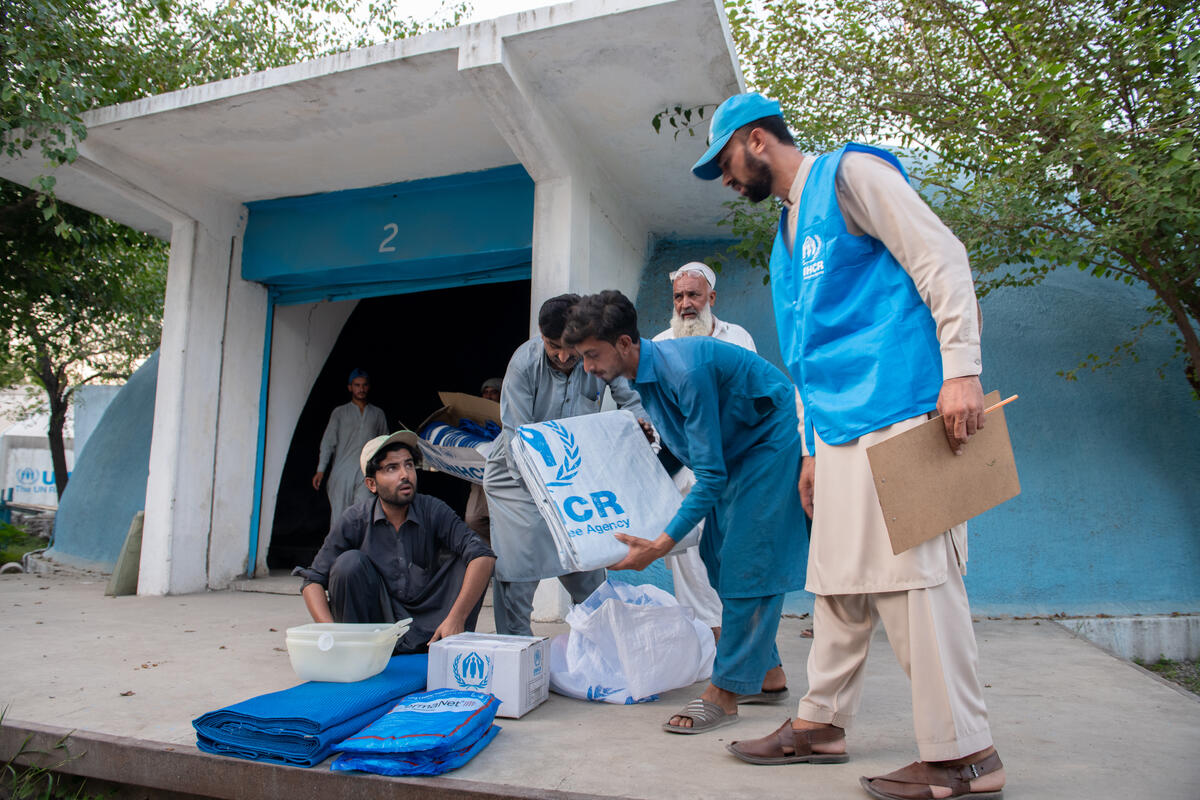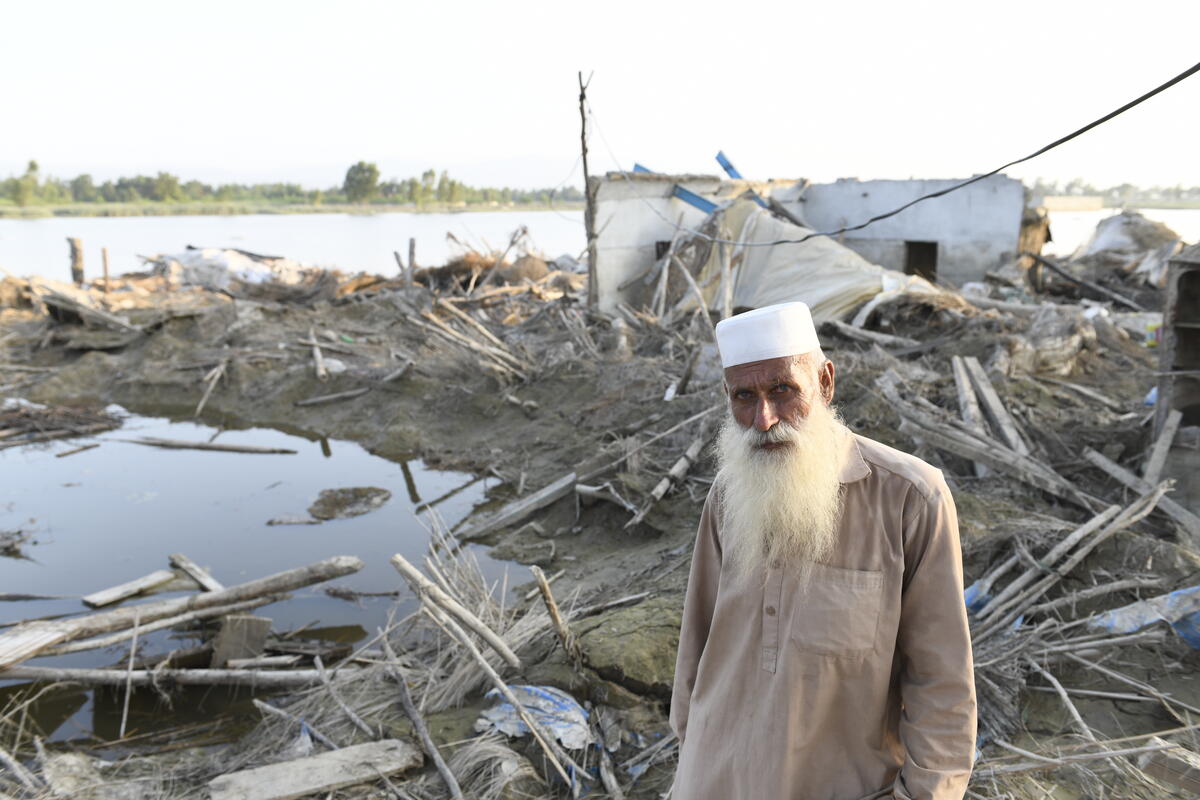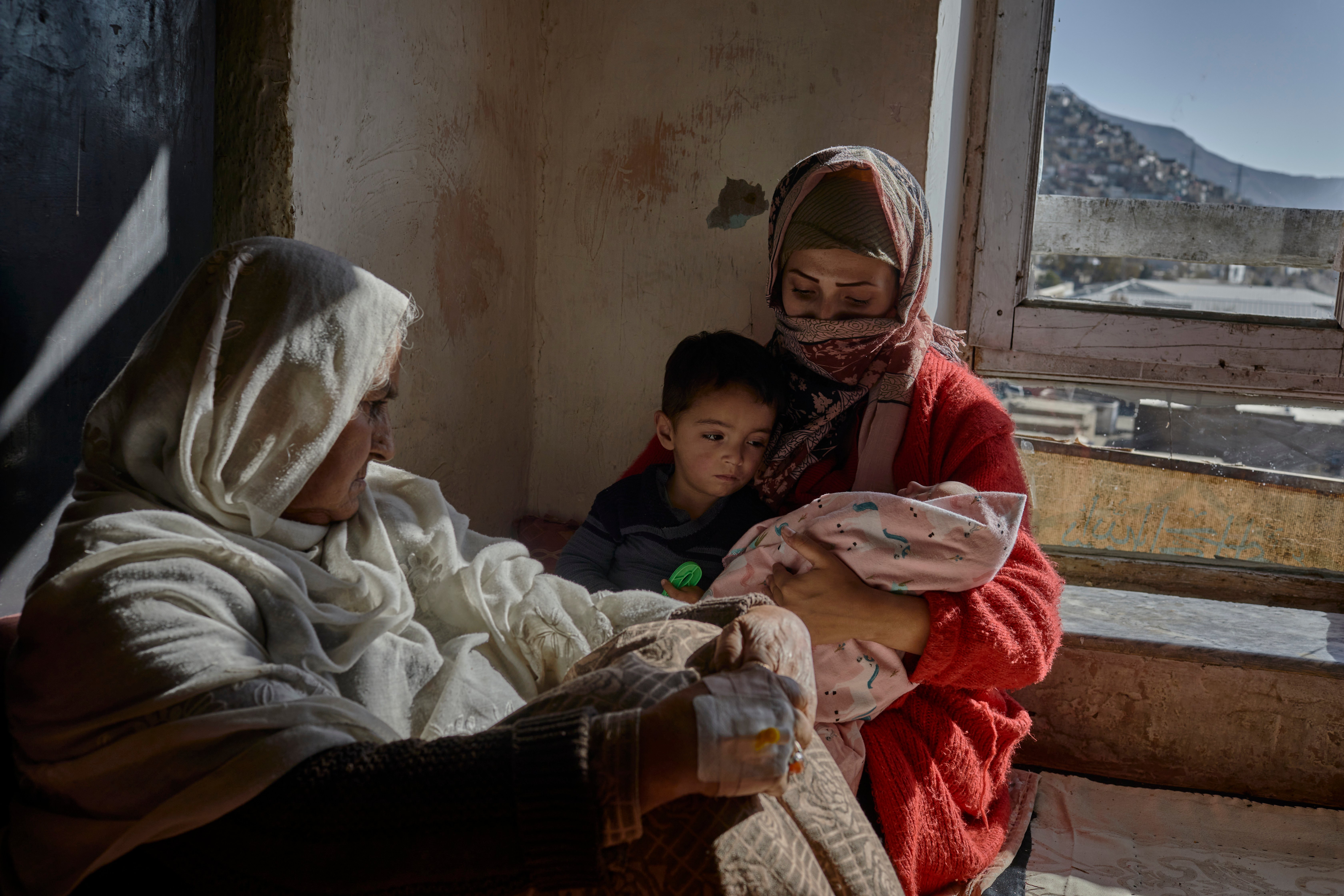Feature: "In your own village, you will never sleep on an empty stomach"
Feature: "In your own village, you will never sleep on an empty stomach"

PESHAWAR, Pakistan (UNHCR) - Mohammad Fahim was eight years old when he fled Afghanistan for Pakistan in 1985 and started living in Peshawar with his mother, father and two younger sisters.
Seventeen years later, Mohammad, now 25 and married with two kids, has finally decided to go back to his homeland after hearing from some people who had repatriated in June that the situation in his village in Baghlan province, north of Kabul, has improved.
He is joining what UNHCR says is the largest return movement in 30 years. From Pakistan alone, more than 1.4 million long-time Afghan refugees have gone home since March, when the UN refugee agency began helping people to repatriate under a joint initiative with the Afghan government.
"The last six months have seen the largest single refugee repatriation since 1972, with total returns to Afghanistan currently standing at more than 1.63 million people," UNHCR spokesman Ron Redmond told a Geneva press conference recently. "Considering the state of Afghanistan's infrastructure and the security problems that still affect many areas, this is an astonishing number."
Although they are ethnic Pashtuns, a tribe that has faced danger from bandits emboldened in post-Taliban Afghanistan and suffered outright ethnic attacks in some corners of the north, Mohammed and his family feel comfortable returning to their native Baghlan province in northern Afghanistan.
His sisters have long married and moved back to Afghanistan. His mother, now a widow, has told him it is time to go back. She wants to be buried in her motherland when she dies.
Gearing up for departure from Takhtabaig Voluntary Repatriation Centre near Peshawar, Mohammed appears very happy about going home. He does not remember much about his native country, but recalls that he used to lend a hand to his father in farming after school hours in his village.
Mohammed, who worked as a driver in Peshawar, is hopeful about his future in Baghlan. "I graduated from twelfth grade," he says in broken English, adding that people who know a little English can find jobs in non-governmental organisations in Afghanistan.
"If I do not succeed, then I will do what my father and grand father did - farming."
But it is not family ties alone that spur Mohammed's interest in going back home. A global economic downturn in the wake of the September 11 terrorist attacks, coupled with the rapid repatriation of more than 843,000 Afghan refugees from Pakistan's North-West Frontier Province, has seen vibrant Peshawar lose some of its bustle.
It does not help that life in rented homes is expensive for the refugees, who must scratch out a living in a foreign land. Mohammed says matter-of-factly, "I can no longer afford my living in Pakistan. I know that it could be even more difficult in Afghanistan, but I have my relatives in my village, a small house and a piece of land. In your own village you will never sleep on an empty stomach."
What would he do if fighting starts again? Mohammed replies with great confidence, "Peace will persist this time. We will not be back in Pakistan even if something happened in Afghanistan. I want my children to grow up in my home in Baghlan."
Slowly but surely, he packs up the luggage he had to open at the request of verification team, and loads them onto the pickup with the rest of his belongings. His eyes shine with hope as he climbs up the pickup and heads for home with his family.
By Mariam Arzomand
UNHCR Pakistan









